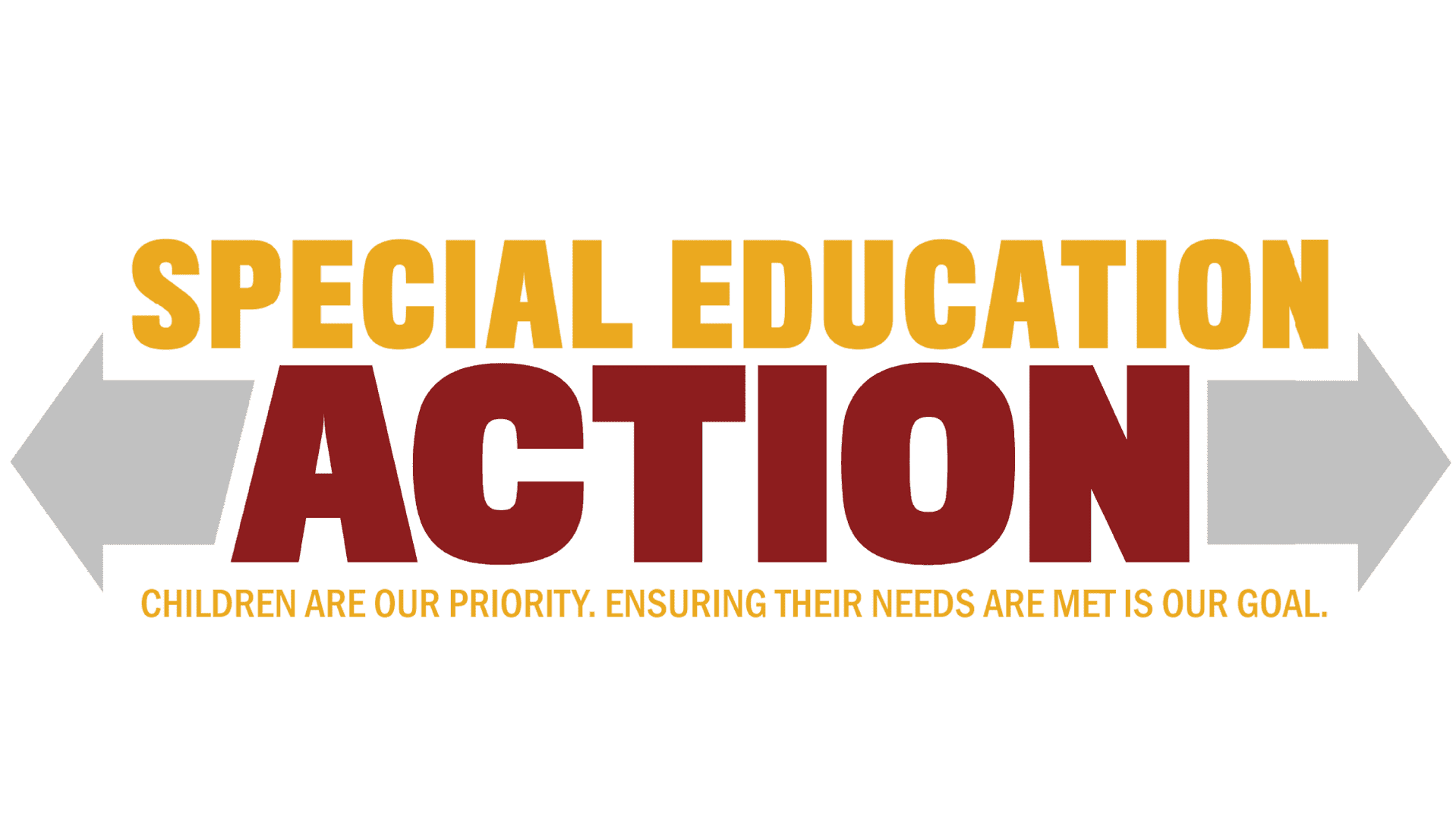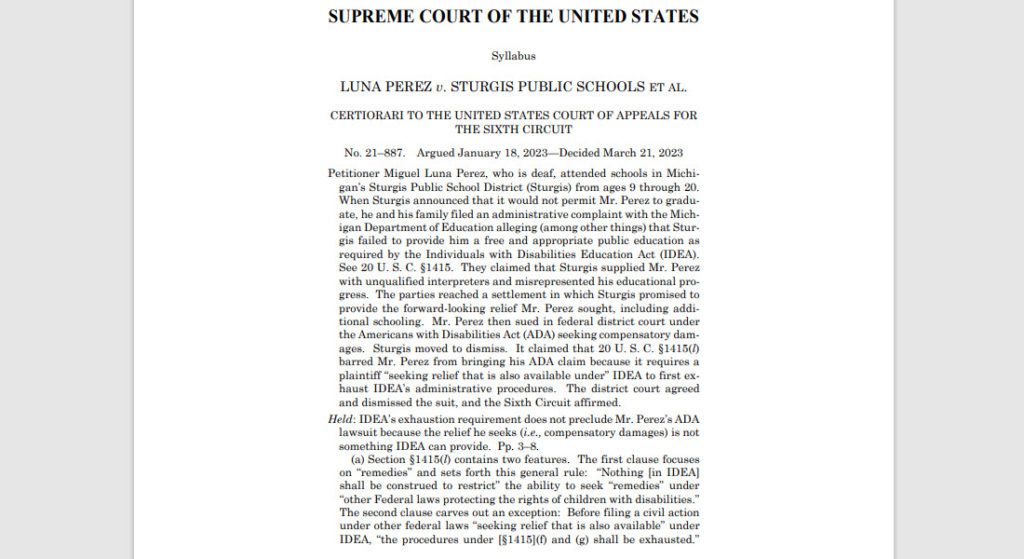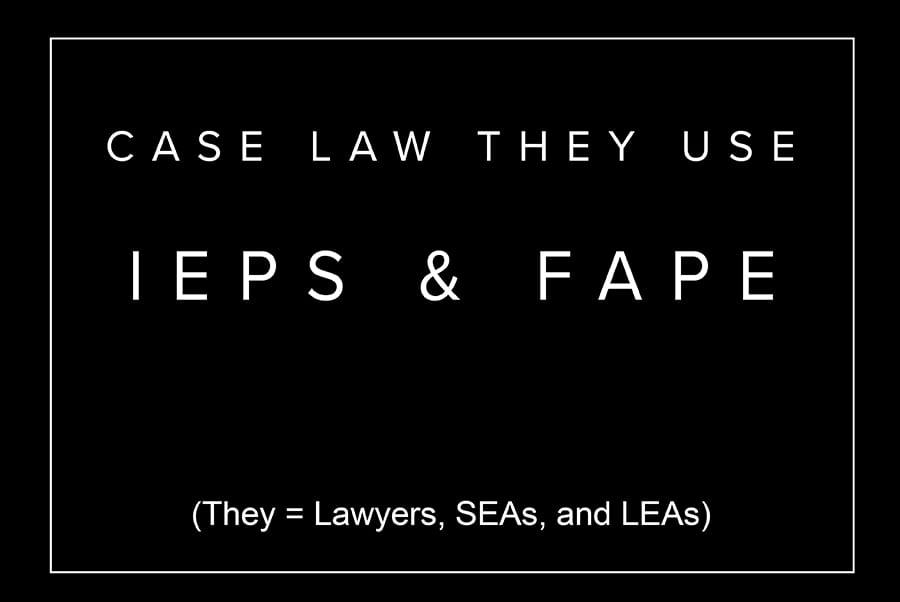Today, just two months after oral arguments were presented, Justice Gorsuch delivered the opinion of the Court, which had to decide 1) whether, and in what circumstances, courts should excuse further exhaustion of the Individuals with Disabilities Education Act’s (IDEA) administrative proceedings under Section 1415(l) when such proceedings would be futile, and 2) whether Section 1415(l) requires exhaustion of a non-IDEA claim seeking money damages that are not available under the IDEA.
The case was based on the experiences of Miguel Luna Perez, who was denied a Free Appropriate Public Education (FAPE) for years while attending Sturgis (Michigan) Public Schools (SPS). For 12 years, SPS advanced Miguel Luna Perez from grade to grade and inflated his grades to the point he repeatedly made honor roll, even though he couldn’t read or write—and then just before graduation told his family he would receive a certificate of completion but not a high school diploma.


